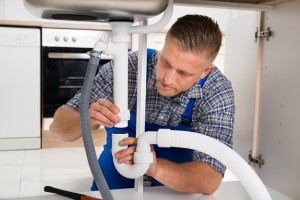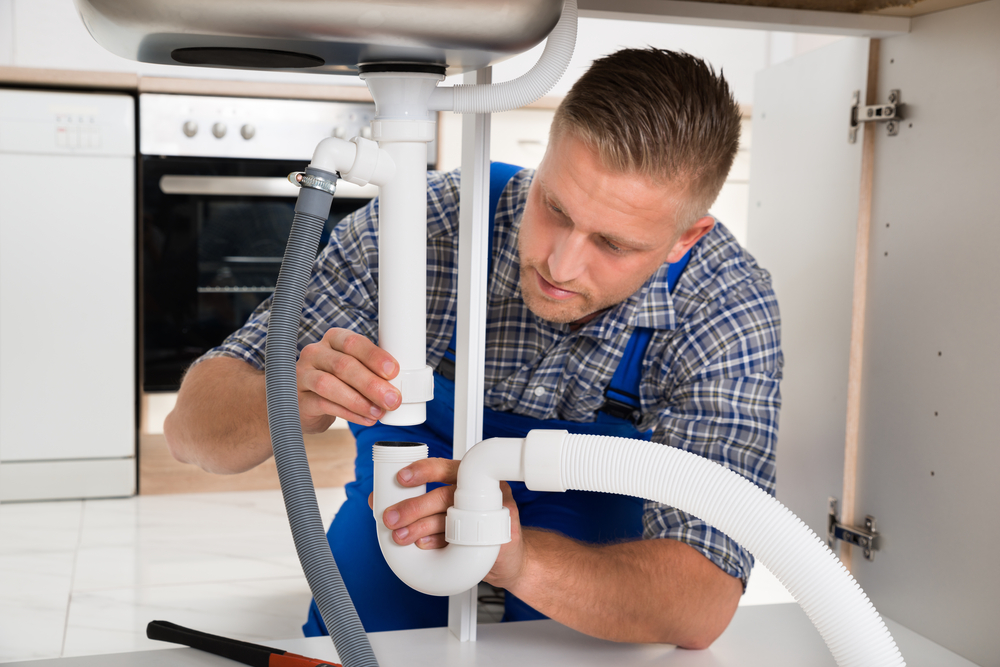 If you recently purchased a new home, you will obviously want to do everything you can to protect that investment. This goes for the areas of the house you can see as well as those that may not typically be top of mind — such as your plumbing. In order to protect your pipes as effectively as possible, never use a harsh chemical such as Drano. These are just a few of the reasons why, as well as some alternative methods of cleaning your pipes that will keep them as safe as possible.
If you recently purchased a new home, you will obviously want to do everything you can to protect that investment. This goes for the areas of the house you can see as well as those that may not typically be top of mind — such as your plumbing. In order to protect your pipes as effectively as possible, never use a harsh chemical such as Drano. These are just a few of the reasons why, as well as some alternative methods of cleaning your pipes that will keep them as safe as possible.
Why Drano is a No-Go
One of the easiest ways to damage plastic pipes is to use Drano or a similar product. The reason is simple: The chemicals in harsh cleaning agents will quickly start to eat away at them.
If you use these types of products on a regular basis, they can even start to cause metal pipes to corrode. This is especially the case if you have a particularly stubborn clog that does not clear after using Drano, Liquid-Plumbr or something similar. The chemicals will remain in your pipes, slowly eroding them over time. If you have this type of clog, call a professional to have it removed for good.
Toilet Clogs and Drano — A Damaging Combination
A lot of homeowners make the major mistake of trying to use Drano to clear a toilet clog. Even the makers of the product recommend against it, because its caustic chemicals can do a lot of damage. Drano’s oxidation process can clear a clog, but it can also create a great deal of heat inside the toilet bowl. The tougher the clog, the longer the chemical will continue to generate heat. This can lead to a toilet bowl crack that is so severe you will need to replace the entire unit. In some extreme instances, Drano use in a toilet has led to damaging explosions, requiring the replacement of not only the commode but other substantial repairs as well.
Drano could even cause an injury if it fails to clear the clog. Many people have become so frustrated they have tried using a plunger to get rid of an obstruction not thinking about the fact that the caustic chemical is still in their toilet bowl. As a result, water containing Drano can easily splash and burn the skin.
What are Your Options?
You will be much better off using a flange plunger or a toilet auger (also called a drain snake) to try and clear a toilet clog. A flange plunger, which is shaped similar to a bell, is specifically designed for toilets. Stay away from the traditional cup-shaped plunger, because that is made for sinks and other flat surfaces.
A toilet auger is a coil that extends down the toilet to push a clog down the drain so it can be flushed through the sewer line. The drawback to this approach is that most augers from your local hardware store will only go a few feet. If the obstruction is farther down the line, then you will need to call a professional plumber.
If you do not have either a flange plunger or a snake, there are still far better alternatives to Drano. For example, try using dishwashing soap and hot water to clear a clog. Here’s how to do it:
- First, pour a small amount of dish soap (about a teaspoon should do it) into the toilet bowl and let it sit for approximately 10 minutes.
- Get a small pot, fill it with water, and put it on the stove to boil. Just make sure it does not come to a complete boil, because that could damage the toilet bowl. Take the pot off the stove just before the water begins to bubble.
- Pour the hot water into the bowl, making sure it goes in with enough force to loosen the clog. Pouring from about waist-high should do the job.
- If the obstruction does not clear, let the soap/hot water mix soak for 10-15 minutes. If that doesn’t work, try the process again. If the obstruction still won’t clear, call a plumber.
In some instances, a mixture of baking soda and vinegar can also be effective. Remove some water from the bowl, pour in a half box of baking soda and a bottle of white vinegar on top of that. Let the mixture bubble for 30 minutes and gradually add some hot water. Repeat the process until the drain is gone.
Whatever solution you try, just remember to always steer clear of harsh chemicals. If a clog simply will not dissipate, call a professional to get rid of it for good.
Patricia Bonacorda knows from first hand experience the effects of homeowners using Drano. As the President of Spartan Plumbing a plumbing and HVAC company, she has assisted all types of businesses and residential homes since 1964. Spartan is a licensed, bonded and insured business that provides professional plumbing, heating and air conditioning services.

